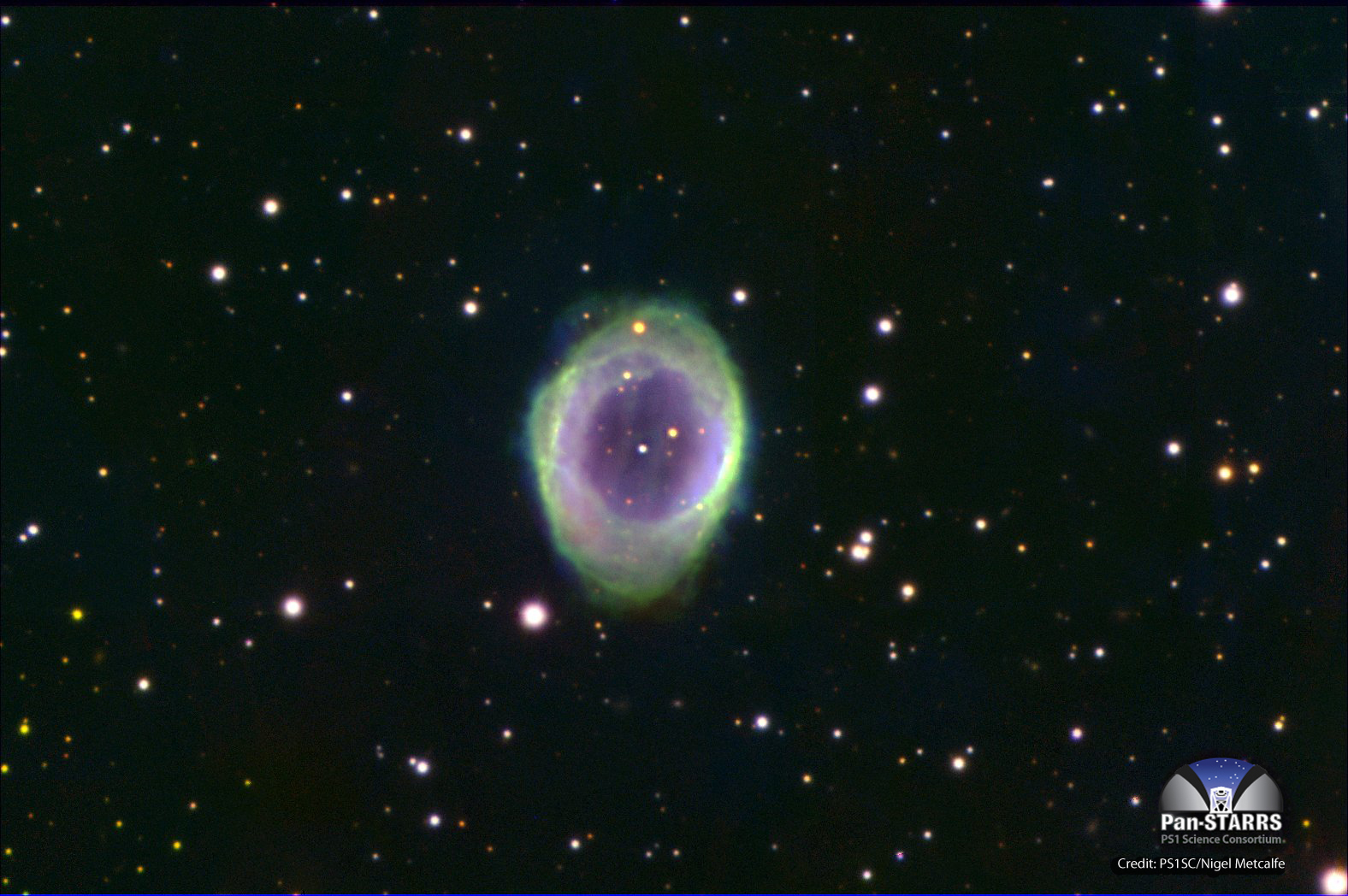PS1SC Blog
Pan-STARRS is a groundbreaking project to survey the sky visible from Hawai`i looking for undiscovered asteroids, distant exploding stars and much more.
If you have questions about the blog please contact blog AT ps1sc.org.
Powered by 
August 7th, 2011 by ps1scblog

The Ring Nebula, M57. Credit:PS1SC/Nigel Metcalfe
This month’s Pan-STARRS image of the Month is M57, the Ring Nebula. This is a planetary nebula, remains of the death-throws of a star of about the same mass as the Sun. The colour variations are caused by excited low density gas. Different colours indicate different elements or different levels of excitation. The dot in the centre is a white dwarf, the remnant of the now dead star which created the nebula.
Posted in PS1 image of the Month
Please feel free to comment on this article, selected comments will be published. Comments are moderated and their content are the opinions of the comment authors and not PS1SC, its member institutions or funding bodies.
Leave a Reply
The Pan-STARRS Project is being led by the University of Hawaii Institute for Astronomy, and exploits the unique combination of superb observing sites and technical and scientific expertise available in Hawaii. Funding for the development of the observing system has been provided by the United States Air Force Research Laboratory. The PS1 Surveys have been made possible through contributions by the Institute for Astronomy, the University of Hawaii, the Pan-STARRS Project Office, the Max-Planck Society and its participating institutes, the Max Planck Institute for Astronomy, Heidelberg and the Max Planck Institute for Extraterrestrial Physics, Garching, The Johns Hopkins University, Durham University, the University of Edinburgh, the Queen's University Belfast, the Harvard-Smithsonian Center for Astrophysics, the Las Cumbres Observatory Global Telescope Network, Incorporated, the National Central University of Taiwan, and the National Aeronautics and Space Administration under Grant No. NNX08AR22G issued through the Planetary Science Division of the NASA Science Mission Directorate. Any opinions, findings, and conclusions or recommendations expressed in this article are those of the author(s), and do not necessarily reflect the views of the National Aeronautics and Space Administration, the PS1 Science Consortium or its member institutions.











